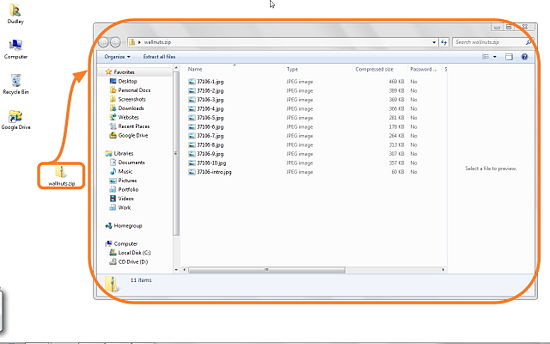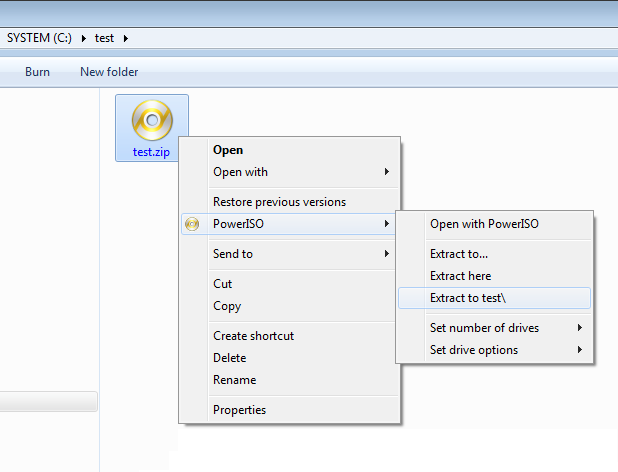
This is slightly different the overwriting all the files. If you don’t want any existing file to be overwritten by newly extracted files, use the -n option (stands for never overwrite). You can force overwrite all the files with option -o. If there are already files with the same name in the directory where you are extracting the files, you’ll be promoted for each such files. Overwrite all the files without prompting The CRC-32 in the output is the cyclic redundancy check. If you want, you can get more information like the compressed size, compression ratio by using the verbose mode with -v option. unzip -l zip_fileĪs you can see, it also shows the timestamp of the files and the actual size of the individual files in bytes. You can use the -l option and it will show the content of the zip file.
#Unzip zip files zip file#
If you want to see what the zip file contains, you son’t always have to extract it first. See the content of the zip file without extracting You cannot create nested directories in this manner though.ĭo note that you can also put the target directory at the end but not all options can be added at the end. If the target directory doesn’t exist, it will be created. You can specify the target directory where you want to extract the files. The expected behavior is that you should have the files extracted to a certain directory, normally with the same name as the zip file. It’ll just flood your current directory with all the extracted files. If you use it to extract a zip file without any option, it will extract all the files in the current directory: unzip webdesign.zipĪnd that’s not what you would want most of the time. The unzip command has a really simple syntax: unzip zip_file
#Unzip zip files how to#
Once you have verified that, let’s see how to use unzip in Linux terminal.
#Unzip zip files install#
On Ubuntu and Debian, you can use this command: sudo apt install unzip

You can use your distribution’s package manager to install the command. Before you do that, make sure that unzip has been installed on your system. It’s time to see various usage of the unzip command.


I have discussed how to gzip a folder in Linux in the past. The unzip command in Linux is quite versatile and you can use it do a lot more than just extracting zip file. If you have a zip compressed file, you can unzip it in the Linux command line.


 0 kommentar(er)
0 kommentar(er)
